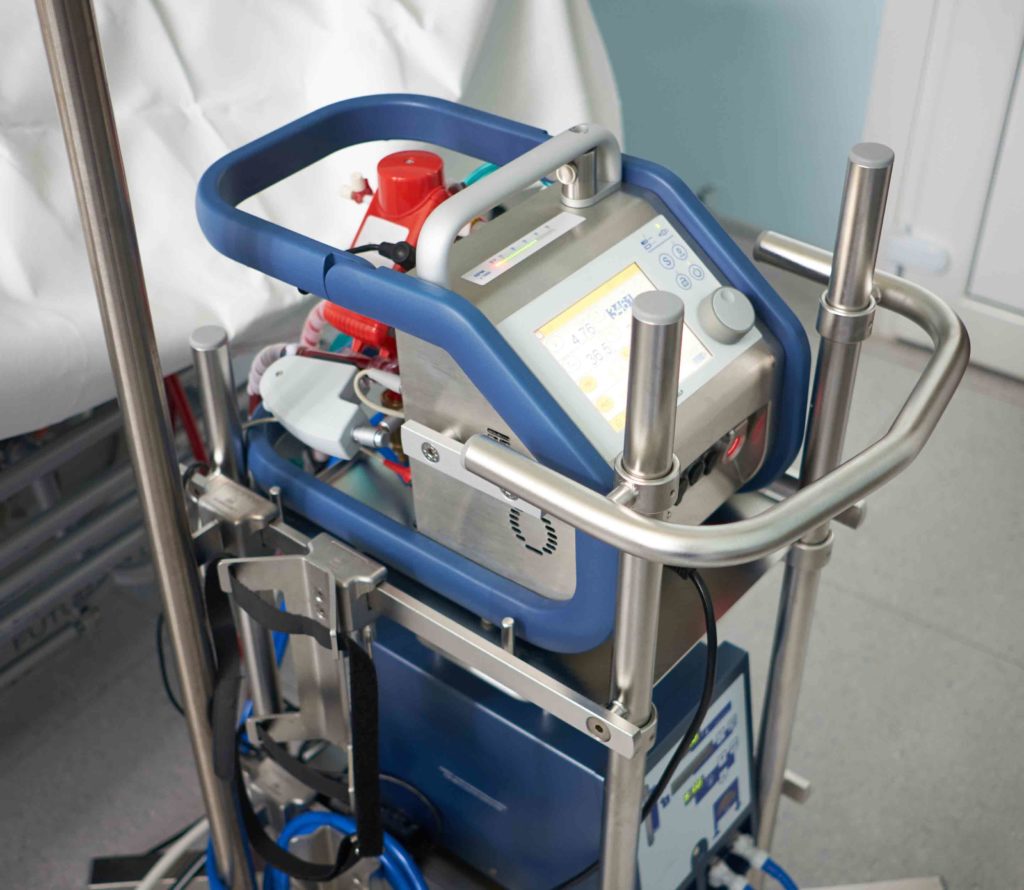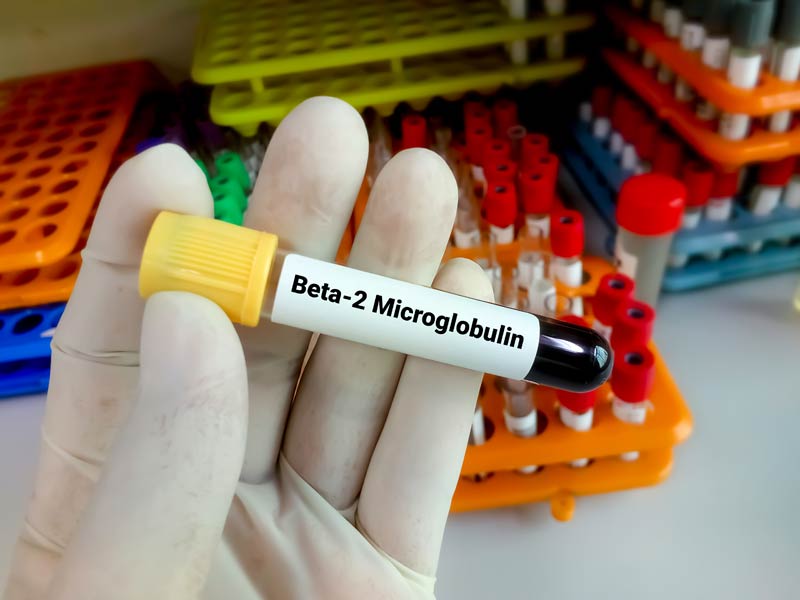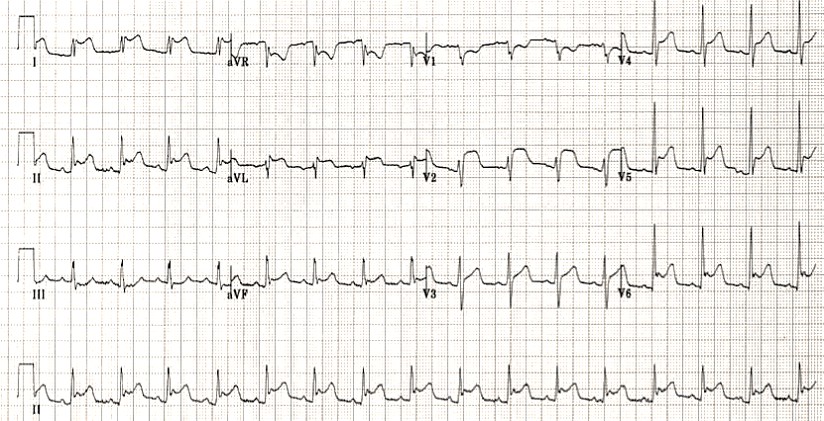RESP (Respiratory ECMO Survival Prediction) Score online calculator

Predicts in-hospital survival in adult patients after ECMO for acute respiratory failure.
RESP Score should be used in patients receiving venovenous (VV) and veno-arterial (VA) extracorporeal membrane oxygenation (ECMO) for acute respiratory failure. NB! Do not use in patients receiving VA ECMO for cardiogenic shock (see SAVE Score).
18-49
50-59
≥60
Any malignancy, solid organ transplant, HIV, or cirrhosis:
Yes
No
48 hours to 7 days
<48 hours
Viral pneumonia
Bacterial pneumonia
Asthma
Trauma or burn
Aspiration pneumonitis
Other acute respiratory diagnosis
Nonrespiratory or chronic respiratory diagnosis
Neurotrauma, stroke, encephalopathy, cerebral embolism, or seizure/epilepsy:
Yes
No
Any other bacterial, viral, parasitic, or fungal infection not involving the lung:
Yes
No
Yes
No
Yes
No
Yes
No
Yes
No
Yes
No
Yes
No
| Patient’s score | RESP Score | Risk class | In-hospital survival |
|---|---|---|---|
| 0 | 0 | 0 | 0 |
ECMO is a resource-intensive endeavor with high morbidity, and patients should be selected carefully. Survival estimates may aid the decision process.
Addition of the selected points:
| Age, years | 18-49 | 0 |
| 50-59 | -2 | |
| ≥60 | -3 | |
| Immunocompromised status at time of ECMO Any malignancy, solid organ transplant, HIV, or cirrhosis | No | 0 |
| Yes | -2 | |
| Mechanically ventilated before ECMO initiated | >7 days | 0 |
| 48 hours to 7 days | +1 | |
| <48 hours | +3 | |
| Diagnosis | Viral pneumonia | +3 |
| Bacterial pneumonia | +3 | |
| Asthma | +11 | |
| Trauma or burn | +3 | |
| Aspiration pneumonitis | +5 | |
| Another acute respiratory diagnosis | +1 | |
| Nonrespiratory or chronic respiratory diagnosis | 0 | |
| History of central nervous system dysfunction Neurotrauma, stroke, encephalopathy, cerebral embolism, or seizure/epilepsy | No | 0 |
| Yes | -7 | |
| Acute associated nonpulmonary infection Any other bacterial, viral, parasitic, or fungal infection not involving the lung | No | 0 |
| Yes | -3 | |
| Neuromuscular blockade before ECMO | No | 0 |
| Yes | +1 | |
| Nitric oxide before ECMO | No | 0 |
| Yes | -1 | |
| Bicarbonate infusion before ECMO | No | 0 |
| Yes | -2 | |
| Cardiac arrest before ECMO | No | 0 |
| Yes | -2 | |
| PaCO₂ ≥75 mmHg (≥10 kPa) | No | 0 |
| Yes | -1 | |
| Peak inspiratory pressure ≥42 cm H₂O (≥4.1 kPa) | No | 0 |
| Yes | -1 |
Interpretation:
| RESP Score | Risk class | In-hospital survival |
| ≥6 | I | 92% |
| 3-5 | II | 76% |
| -1 to 2 | III | 57% |
| -5 to -2 | IV | 33% |
| ≤-6 | V | 18% |
Other factors may contribute to the decision to initiate ECMO (e.g. life expectancy, quality of life, resource availability).
The RESP Score only predicts survival before hospital discharge and does not predict neurologic function or functional status, that may be important considerations. The score was derived from a cohort of patients who were placed on ECMO, and likely excluded many patients who may have had different survival rates.
RESP Score Assessment can be useful in survival prediction and may be incorporated into the decision to initiate VA ECMO.
Prone positioning was not included in the derivation of the RESP Score, and its effect on the predictive value of the score is unknown.
The RESP Score was derived in a retrospective cohort study by Schmidt et al (2014), which included 2,355 patients in the Extracorporeal Life Support Organization (ELSO) registry who received ECMO for acute respiratory failure. Patients receiving ECMO for indications other than acute respiratory failure (e.g. cardiogenic shock) were excluded. Predictive variables with p-values ≤0.05 were included to derive the final score.
The score was prospectively validated in 140 patients (included in initial publication) (c = 0.92, CI 0.89-0.97). In a small retrospective study of 41 patients (Brunet 2017), the score was found to have low predictive value for mortality (c-index 0.60).
Comprehensive decision-making should not be based solely on one prediction rule, and the threshold to initiate ECMO may vary by institution.
Predicts chances of mortality after on ECMO in COVID-19 patients, performing better in validations than PRESET Score.
Register on our website right now to have access to more learning materials!
Literature:
1. Schmidt M, Bailey M, Sheldrake J, et al. Predicting survival after extracorporeal membrane oxygenation for severe acute respiratory failure. The Respiratory Extracorporeal Membrane Oxygenation Survival Prediction (RESP) score. Am J Respir Crit Care Med. 2014;189(11):1374-82. https://pubmed.ncbi.nlm.nih.gov/24693864/
2. Brunet J, Valette X, Buklas D, et al. Predicting Survival After Extracorporeal Membrane Oxygenation for ARDS: An External Validation of RESP and PRESERVE Scores. Respir Care. 2017;62(7):912-919. https://pubmed.ncbi.nlm.nih.gov/28536282/
Baseline Cardiovascular Risk Assessment in Cancer Patients Scheduled to Receive Cardiotoxic Cancer Therapies (Anthracycline Chemotherapy) – Online Calculator
Baseline cardiovascular risk assessment in cancer patients scheduled to receive cardiotoxic cancer therapies (Anthracycline Chemotherapy)…
National Institutes of Health Stroke Scale (NIHSS) – Online calculator
The National Institutes of Health Stroke Scale (NIHSS) is a scale designed to assess the…
Charlson Comorbidity Index (CCI) Online Calculator
Charlson Comorbidity Index predicts 10-year survival in patients with multiple comorbidities.
Multiple Myeloma Diagnostic Criteria – Online Calculator
Revised Multiple Myeloma International Staging System (R-ISS) Online Calculator
Revised Multiple Myeloma International Staging System (R-ISS) – prognostication tool for myeloma patients based on…
Multiple Myeloma International Staging System (ISS) Online Calculator
Multiple Myeloma International Staging System (ISS) prognosticates the severity of multiple myeloma based on routinely…











